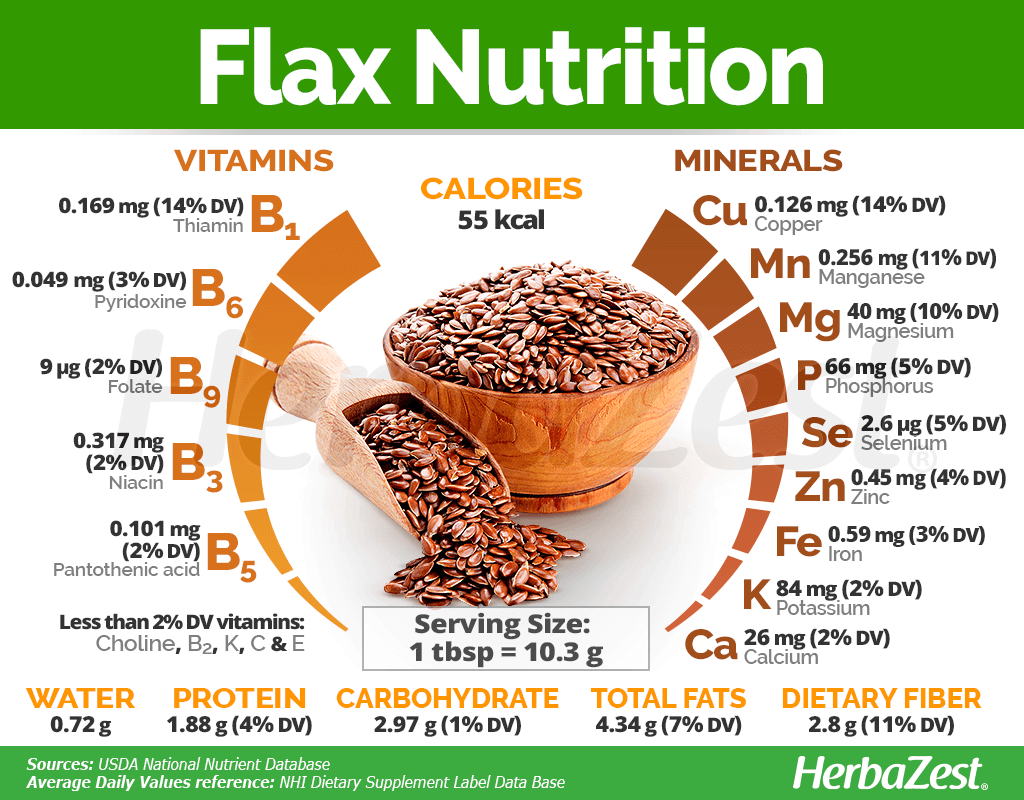Flax seeds are a popular superfood known for their numerous health benefits. They are a rich source of omega-3 fatty acids, fiber, and lignans, which have been shown to have a positive impact on heart health, cholesterol levels, and digestion. In addition, flax seeds are high in antioxidants and protein, making them a great addition to a healthy diet.
One ounce (28 grams) of flax seeds contains approximately:
Flax Nutritional Information
- Calories: 150
- Protein: 5 grams
- Fat: 12 grams
- Carbohydrates: 8 grams
- Fiber: 8 grams
Flax Seeds Nutritional Content
Flax seeds are also a good source of vitamins and minerals, including:
- Calcium
- Magnesium
- Phosphorus
- Potassium
- Vitamin B6
- Iron
- Zinc
Flax seeds can be easily incorporated into your diet by adding them to smoothies, oatmeal, yogurt, or baked goods. They can also be used as a substitute for eggs in vegan baking recipes. To maximize the nutritional benefits of flax seeds, it is recommended to grind them before consuming, as whole flax seeds may pass through the digestive system undigested.
How to Store Flax Seeds
Flax seeds should be stored in an airtight container in a cool, dark place, such as the refrigerator or freezer, to preserve their freshness and prevent them from going rancid. Ground flax seeds should be consumed within a few weeks, while whole flax seeds can last for several months when stored properly.
In conclusion, flax seeds are a nutritious and versatile ingredient that can enhance the nutritional value of your meals and provide numerous health benefits. By incorporating flax seeds into your diet, you can boost your intake of essential nutrients and promote overall well-being.
